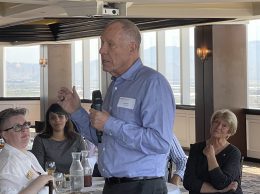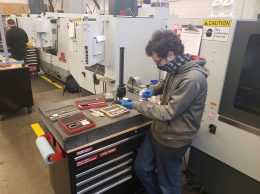Editorial: An education bubble? Probably not for most
There is plenty of speculation in the blogosphere and in the mainstream media about a new “education bubble” that has inflated the value of a college degree.
We think that’s at best an unsubstantiated speculation and we’re pleased to see that two of the region’s top entrepreneurial minds agree with us, at least in part. In a piece entitled “Wagging the Dogma,” Paul Orfalea and Lance Helfert of West Coast Asset Management take issue with the education bubble theory being promoted by PayPal co-founder and Facebook investor Paul Theil.
Theil has started a “Twenty Under Twenty” fellowship that provides up to $100,000 to under 20-somethings who want to drop out of school and work on an idea for a couple of years.
Now, Theil is to be congratulated for finding an innovative and creative way of spotting the next fabulously successful dropout, i.e. the next Bill Gates or Mark Zuckerberg. But does his promotion make sense for the rest of America?
Probably not, Orfalea and Helfert argue in their essay. Although college graduates in 2011 face a particularly difficult challenge in managing debt and finding work, the only truly fair test of the bubble theory is to compare the careers of 20 randomly selected college graduates with 20 randomly selected dropouts and see whether education will pay for itself or not.
Our suspicion is that so-called the “education bubble” represents a combination of a terrible cyclical economy for new work force entrants, education costs that have soared dramatically, especially for public institutions caught in budget traps, and a societal lack of confidence that has put the question of any investment in the future under a microscope.
These are the sorts of situations in which brilliant contrarians can go against the grain and make lots of money.
But they also are situations that are likely to be reversed — the economy will slowly get better, higher education will get religious on costs, students will become savvier education shoppers and confidence will return.
Hey, if you think today’s college graduates have it bad, consider today’s college dropouts.
Helfert and Orfalea concede that Theil’s idea is “brilliant” and a clever way to “raise awareness of systemic flaws in higher education.” But will the education bubble turn out to be real? We aren’t so sure.










